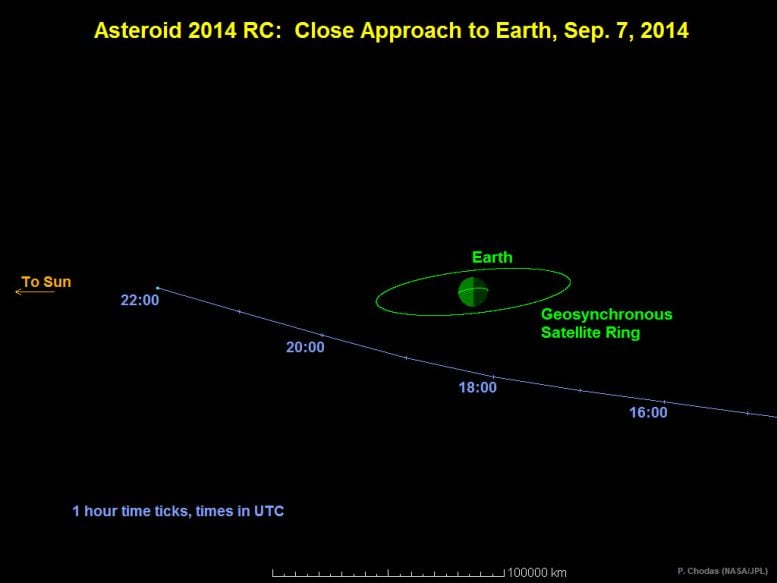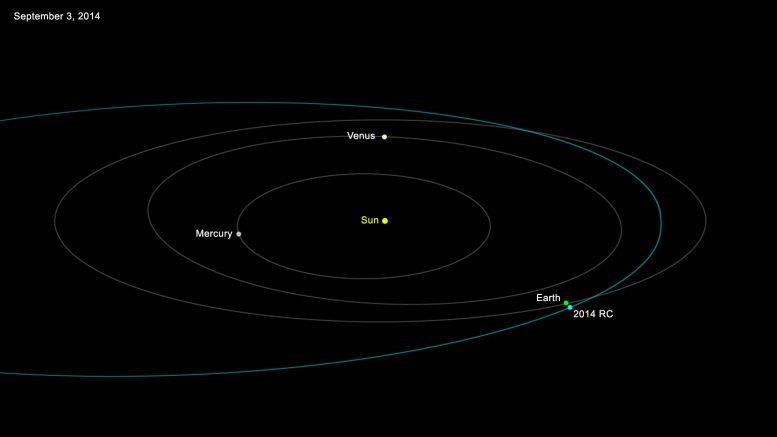
This coming Sunday a twenty meter asteroid called 2014 RC will safely pass near Earth at a distance of about 25,000 miles.
A small asteroid, designated 2014 RC, will safely pass very close to Earth on Sunday, September 7, 2014. At the time of closest approach, based on current calculations to be about 2:18 p.m. EDT (11:18 a.m. PDT / 18:18 UTC), the asteroid will be roughly over New Zealand. From its reflected brightness, astronomers estimate that the asteroid is about 60 feet (20 meters) in size.
Asteroid 2014 RC was initially discovered on the night of August 31 by the Catalina Sky Survey near Tucson, Arizona, and independently detected the next night by the Pan-STARRS 1 telescope, located on the summit of Haleakalā on Maui, Hawaii. Both reported their observations to the Minor Planet Center in Cambridge, Massachusetts. Additional follow-up observations by the Catalina Sky Survey and the University of Hawaii 88-inch (2.2-meter) telescope on Mauna Kea confirmed the orbit of 2014 RC.
At the time of closest approach, 2014 RC will be approximately one-tenth the distance from the center of Earth to the moon, or about 25,000 miles (40,000 kilometers). The asteroid’s apparent magnitude at that time will be about 11.5, rendering it unobservable to the unaided eye. However, amateur astronomers with small telescopes might glimpse the fast-moving appearance of this near-Earth asteroid.

The asteroid will pass below Earth and the geosynchronous ring of communications and weather satellites orbiting about 22,000 miles (36,000 kilometers) above our planet’s surface. While this celestial object does not appear to pose any threat to Earth or satellites, its close approach creates a unique opportunity for researchers to observe and learn more about asteroids.
While 2014 RC will not impact Earth, its orbit will bring it back to our planet’s neighborhood in the future. The asteroid’s future motion will be closely monitored, but no future threatening Earth encounters have been identified.
For a heliocentric view of the orbit of asteroid 2014 RC with respect to Earth and other planets, visit: http://ssd.jpl.nasa.gov/sbdb.cgi?sstr=2014+RC&orb=1
Never miss a breakthrough: Join the SciTechDaily newsletter.
1 Comment
Must they say the first sentence 3 times? I know you need a title, but a summary sentence? It’s just the internet.